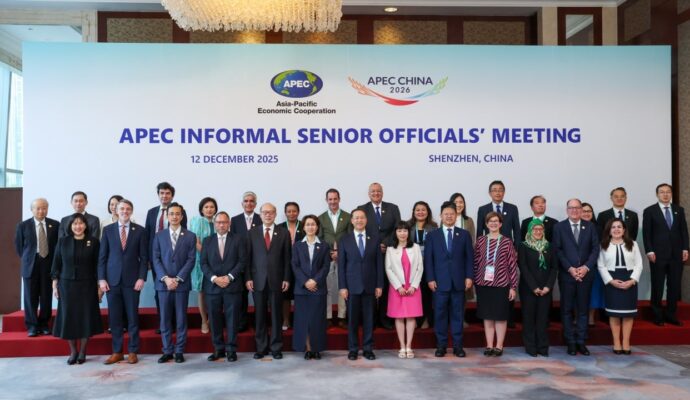Subsequent tests on liberal arts subjects such as history and geography were also designed similarly, according to experts from the testing authority.
A record 12.91 million students sat this year’s gaokao, widely considered the most important set of exams in China – a gruelling, all-important gateway to a college and career of choice under the country’s meritocratic system. Most provinces administered the tests over Wednesday and Thursday.
The NEEA is responsible for preparing all gaokao test papers, save those administered in the megacities of Beijing, Shanghai and Tianjin, where municipal authorities develop their own test papers.
The Chinese leader’s political doctrine – known as Xi Jinping Thought on Socialism with Chinese Characteristics for a New Era – was enshrined in the country’s constitution in 2018.
While this was not the first gaokao to incorporate political elements, the NEEA this time sought to more explicitly publicise references in its test papers to Xi’s remarks and the 20th national congress in October, where he won a historical third term as party leader.
This comes amid a nationwide campaign for studying Xi’s thoughts that was launched by the party leadership in late March. A new series of Xi’s selected works has also been published by the state-run People’s Publishing House in recent months.
One of the gaokao essay prompts asked students to reflect on Xi’s remarks made earlier this year and in 2014. It went viral on social media platforms, with many saying the prompts appeared to note the current tensions between China and the United States.
The excerpt included a line from a speech Xi gave at a high-level meeting with overseas political parties in March, which ran: “One will not be seen in a more favourable light by blowing out others’ lamps; nor will they go further by blocking others’ paths.”
Alongside it was another Xi quote from March 2014, when he referenced a Chinese saying: “A single flower does not make spring, while one hundred flowers in full bloom bring spring to the garden.”
In that speech at the Unesco headquarters in Paris, Xi had said: “If there were only one kind of flower in the world, people would find it boring, no matter how beautiful it was.”
The NEEA said although the remarks “addressed issues such as international relations and the mutual appreciation of civilisations, the ideas revealed are universal”, and applied to relations between countries as well as individuals.
The style of essay prompts has steadily changed over the decades, from being highly political in the late 1970s to focusing more on social issues later and allowing more open-ended formats.
But political elements have begun to gain traction again in recent years. In 2018, candidates were required to write an essay that would be kept in a time capsule, to be opened in 2035 by teenagers turning 18 that year. The essay prompt, in providing extra information as a guide, noted: “2020, moderately prosperous society is fully implemented; 2035, socialist modernisation is realised”. Both are development goals laid out in the party’s policy papers.
As for this year’s liberal arts exams, testing authority experts said the history tests offered deeper assessments of the candidates’ understanding of party history, and the principle that to know history was to “love the party and the country”, according to domestic media outlet The Paper.
The geography test papers included excerpts from Xi’s work report to the 20th party congress and other remarks. According to the experts, these aimed to guide students to use a geographical perspective to understand “ecological civilisation”, held up by Xi as the party’s long-term approach to domestic development.
The papers included questions on the protection of the Yellow River, and the conservation of mountains, water, forests, farmland, grassland and deserts – which are among goals put forward by the party leadership.



